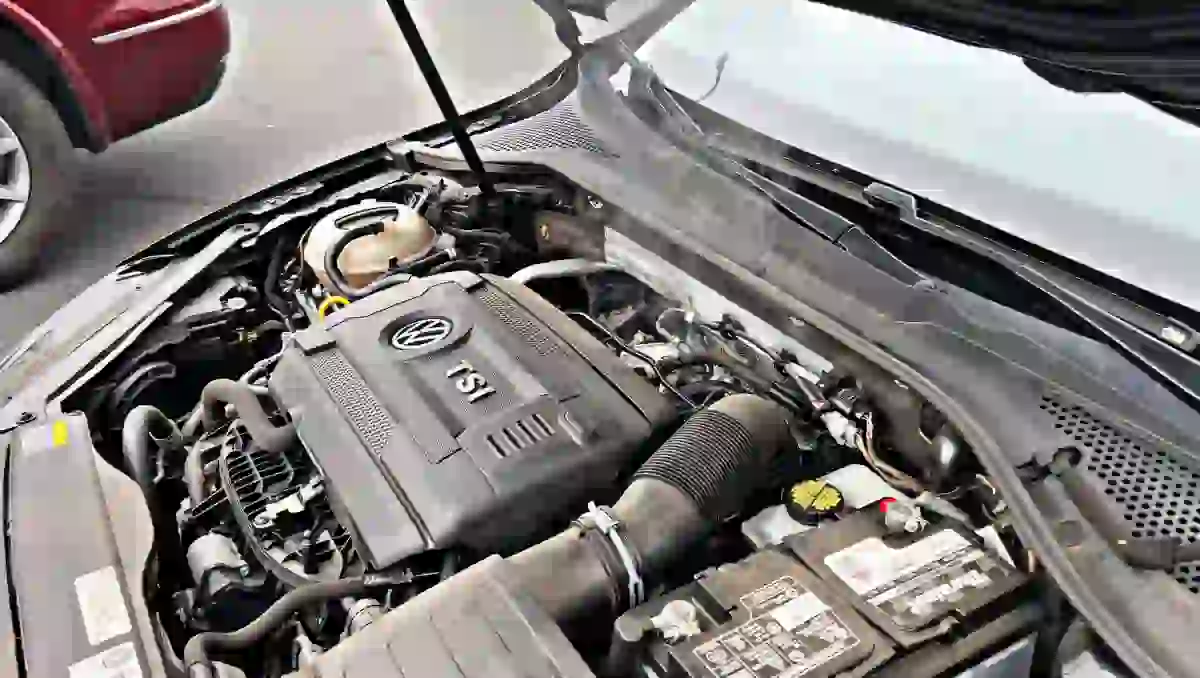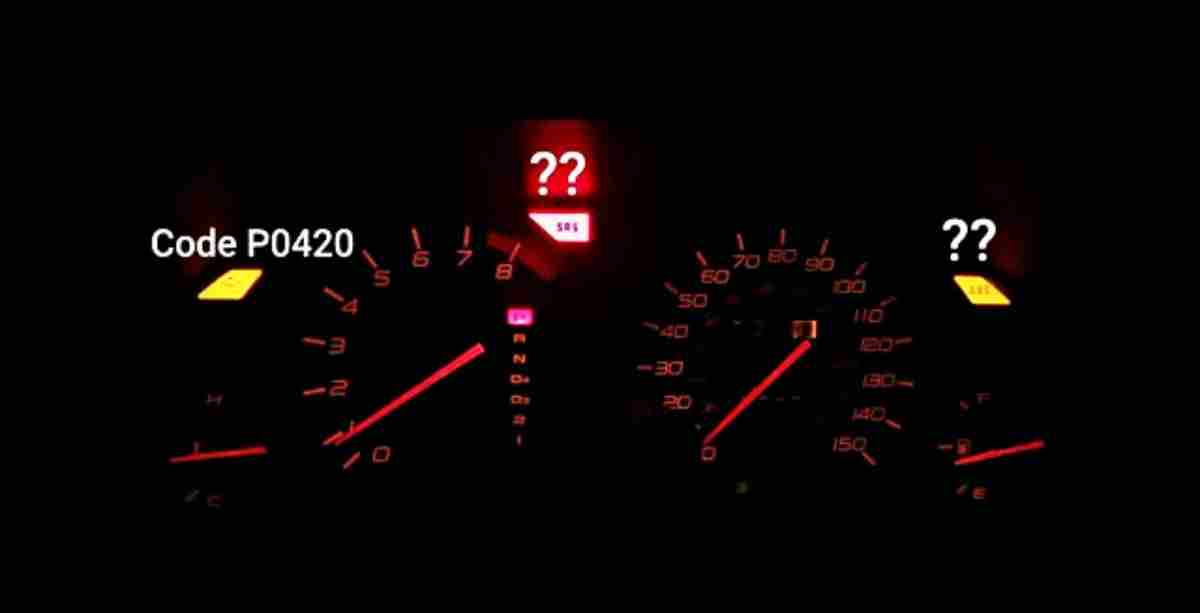If your car makes humming noise when accelerating, it can be a result of different reasons, including worn tires, wheel bearing problems, and low steering fluid level. We reached out to a mechanic, Leo Carlos, to provide not just possible reasons for the humming noise but also how to fix these issues.
Reasons car makes humming noise when accelerating

The rumbling/humming noise can still occur when idle, but sometimes gets louder when you accelerate. Whatever the case, you’ll fix it now.
1. Worn tires
When you accelerate or increase road speed, your car can make a humming noise. If yours rumbles, then your car has worn tires.
The primary source of your tire’s humming noise is uneven tire wear. Incorrect tire pressure, misaligned wheels, and suspension are the causes of irregular tire wear.
Another cause of a tire’s humming noise is a misalignment of the wheels. As a result of the misaligned wheel, you will also have a rougher ride.
And finally, the humming noise you will hear when accelerating can be due to design flaws in the tires. Some tire manufacturers deliberately and unethically set the pressure incorrectly so that you must replace the tire more frequently.
Moreover, in Ohio, for instance, law enforcement can ticket you for driving on tires exhibiting specific unsafe conditions.
How to fix
If the tires become worn, you should replace them to eliminate the humming noise. To prevent future tire deterioration, check the tire pressure regularly and align the wheels frequently.
“Secondy, it’s recommended that you align the wheels and adjust the suspension to prevent the tire wear issue from reoccurring,” says Carlos.
Lastly, there is an alternative to replacing the tires if the humming noise is caused by a design flaw in the tires.
2. Wheel bearing problems
In addition to tire-like noise, a faulty wheel bearing can also cause a tire-like noise. Yet, the noise you would hear if a wheel bearing fails is less similar to the humming noise. Instead, it is likely a grinding noise.
Often, the chirping noise you hear will alter as the speed changes. If you accelerate your car, you will hear a rumbling or growling noise. When decelerating, however, the noise sounds like a hum if the wheel bearings or hub bearing assembly are worn.
Moreover, loose steering and uneven tire wires are indicators of a defective wheel bearing or hub bearing.
How to fix
As soon as you notice these symptoms, Cleo advises taking your car to a local mechanic for wheel bearing or bearing hub repair. The loss of steering control caused by wheel separation makes it exceedingly unsafe to run a car with faulty wheel bearings.
Alternatively, if your car’s hub bearings emit a buzzing or whining noise during acceleration, you should replace the entire assembly.
3. Low level of power steering fluid
Low power steering fluid causes the power steering pump to produce a humming noise. The low fluid level causes or increases oil foaming or frothing. In addition, it causes the power steering pump to run dry and emits a humming noise. Cleo listed numerous factors that contribute to the leaking of steering fluid, including:
- a leaky hose
- a leak at the seal of the pump, steering rack, or steering gear
Now, you may be wondering, how can I determine that the steering fluid level is low? The following indicators will assist you in detecting it:
- You will have difficulty turning the wheels.
- The steering wheel has a jerky or vibrating sensation.
- The fluid will obviously leak.
How to fix
Determine if the steering pump has a leak. If the hose is leaking fluid, we advise you to replace it. Alternatively, you can take your car to a nearby auto parts store or a reputable mechanic to get the fluid leak repaired.
4. Defective power steering pump
Earlier, we discussed why the power steering pump emits a humming noise, and that a low fluid level in the steering system will cause the pump to create a humming noise. “Now, if you hear a humming noise after repairing all possible leaks, the steering pump is likely malfunctioning. The noise will be more intense this time,” Cleo added.
How to fix
The replacement of the power steering pump will resolve the issue. It’s recommended having the steering pump diagnosed and replaced by a skilled mechanic, or yourself if you have the expertise.
5. Defective belt-driven accessory
Your car’s belt drive comprises a variety of components, including pulleys, tensioners, and many others. If any of these components are compromised, the car will make a humming noise when accelerating.
Due to misaligned pulleys, for example, you will hear a continual humming noise as you crank your engine. A lack of belt tension will also result in a screeching sound. If the bearings in the pulley assembly become damaged, it will produce a grinding sound or a humming noise.
How to fix
Repairing problems such as misaligned pulleys and broken pulley assemblies requires professional or mechanical expertise. So, you should take your car to a mechanic to have the pulley aligned and any malfunctioning belt-driven devices repaired.
How long can I drive with a humming wheel bearing?
If you observe any signs of a humming wheel bearing, you should not drive more than 500 kilometers. A humming wheel bearing will make driving more difficult. But with a high quality wheel bearing, you can drive an additional 1000 miles as estimated.
When you notice that your wheel bearing is bad, you should change it immediately to avoid further problems. But what if you are in the middle of a desolate area with no choice but to continue driving? In this case, there is a mild echoing or humming noise emanating from the right back. At first glance, it may appear that the tire is out of balance. Eventually or sooner, the increasing noise would indicate that the wheel bearing is bad. Note: there is no lubricant on the worn wheel to maintain its smoothness.
Hence, the increase in speed would also generate excessive heat. The heat would utterly destroy the wheel. To avoid this, it is advisable to drive at a slower speed so that your wheel remains operational for a few further hours.
Always keep in mind that you should jot rely on this value as it is subject to fluctuate based on your driving style. As soon as you notice a flaw in your wheel bearing, simply replace it immediately.
FAQs
Can low transmission fluid cause humming noise?
Low transmission fluid might result in a humming noise. Even the transmission fluid pump might run dry, resulting in a whining sound from the fluid pump. Check the transmission fluid level and add additional fluid if necessary.
Why is my car humming under the hood?
A humming noise emanates from under the hood, resembling the noise of an airplane taking off. This noise occurs when traveling at high speeds and hinders the car’s performance. In this instance, a fan clutch failure is the most likely cause.
Why is my car making a humming noise when I press the gas?
If you feel a rumbling or humming noise while the car is idling and the noise becomes louder as you accelerate (like an airplane taking off), that is likely a wheel bearing issue.
Why is my engine making a humming noise?
When accelerating a car, humming noise suggest a problem with the wheel bearings. Usually dismissed as engine noise, this can be monitored using the RPM gauge. To address this issue, you should start coasting the car at high speed. If the noise persists, you should take your car to a mechanic.
Why does my car hum at a certain speed?
This is most likely the noise of a wheel bearing. It’s sometimes misunderstood as an engine noise and one method you can determine is to watch your RPM gauge. When the car hum at a certain speed, the RPM and speed readings increase.
Typically, your car makes humming noise when the tires are old, the wheel bearings are broken, and the power steering fluid level is low. Fortunately, we have broken down each issue and outlined the steps you must take to resolve them.
After identifying the problem using our troubleshooting guides, fix it yourself or contact a professional mechanic.
![What Causes Tires to Wear on the Inside? [7 Reasons & Fixes] What Causes Tires to Wear on the Inside? [7 Reasons & Fixes]](https://sanedriver.org/wp-content/uploads/2020/12/tire-wearing-from-the-inside.jpg)

